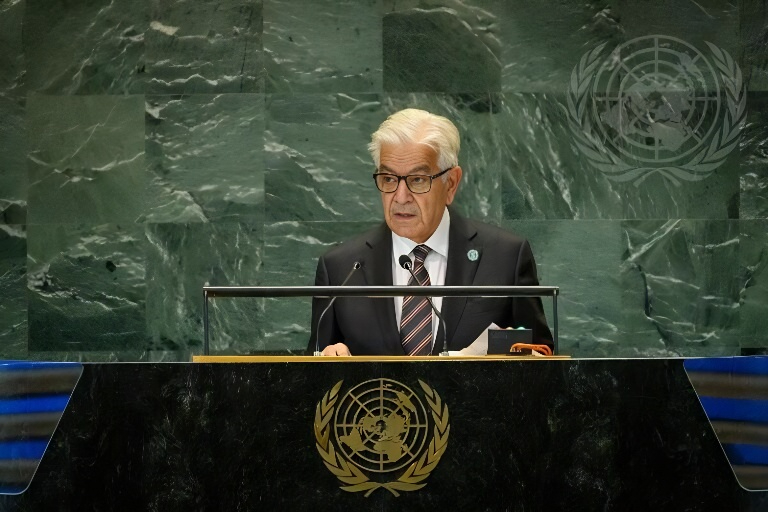Islamabad, Sep 24: Pakistan has urged for the upholding of the promises made in the revolutionary U.N. Pact for the Future, which aims to alter the multilateral system and express the international community’s united willingness to respond to global issues.
On the second and last day of the Summit of the Future, Defense Minister Khawaja Muhammad Asif stated, “The Pact will be transformative only if we translate the commitments undertaken into concrete action. No sustainable development can take place till tragedies like Gaza are perpetuated by the developed world,” he declared strongly at the beginning of his speech.
The comprehensive agreement reached by world leaders on Sunday is intended to improve global governance and address some of the most important issues facing humanity, such as youth and future generations, international peace, sustainable development, and technological innovation. It also suggests thorough action plans to deal with these issues.
Speaking alongside heads of state and government in the famous UN General Assembly hall, he remarked, “For the over 100 developing countries, the Pact offers an opportunity to revitalize development and to reform the unequal international financial and economic system.” In this high-level delegates ranged in front of him.
In this context, Khawaja Muhammad Asif emphasized the necessity of meeting the ODA (Official Development Assistance) obligations in order to close the $4 trillion financing gap for the Sustainable Development Goals;
putting into practice the SDG Stimulus plan proposed by the UN Secretary-General; redirecting 50% of the 2021 SDR (Special Drawing Rights) allocation that was not used; assuring a strong $100 billion replenishment; expanding loans by the multilateral development banks; and reducing borrowing costs for underdeveloped nations in order to create an increasingly ambitious IDA (International Development Association).
In order to ensure global economic equity, the minister of defense also called for strengthening the representation of developing nations in international financial institutions, reexamining and modernizing the structure of sovereign debt, establishing a fair international tax system, and reorganizing the World Trade Organization (WTO) to facilitate the growth and expansion of exports by giving developing nations preferential treatment and avoiding the implementation of new environmental protectionism.
Khawaja Asif stated, “The UN continues to be an essential platform to drive and monitor implementation of these commitments because of its universal membership and mandate.” He also advocated for keeping the digital domain from becoming East-West fragmented and forging a bridge between the North and South. “Equitable data governance must be ensured. Furthermore, we need to harness and manage artificial intelligence’s strength.
In order to advance universal and comprehensive disarmament, including nuclear disarmament, non-proliferation, and conventional arms control, the defense minister underlined the need to find measures to reduce tensions between major powers and forge a new consensus.“To resolve both new and old disputes, including the Jammu and Kashmir dispute, the array of measures envisaged in the UN Charter must be activated,” Khawaja Asif stated.
The Defense Minister claimed that the UN Security Council will be more likely to become paralyzed if more permanent members are added, as desired by India and its allies, in reference to the body’s repeated failures. “Rather, the Council ought to be suitably expanded and enhanced in representation by incorporating additional elected, non-permanent members.” he continued.
The Defense Minister concluded by saying that the UN Charter’s vision of a global order cannot be undermined by equating states with non-state actors.”We can only guarantee that future generations will experience peace, progress, and prosperity through the decisions and actions of States.”
